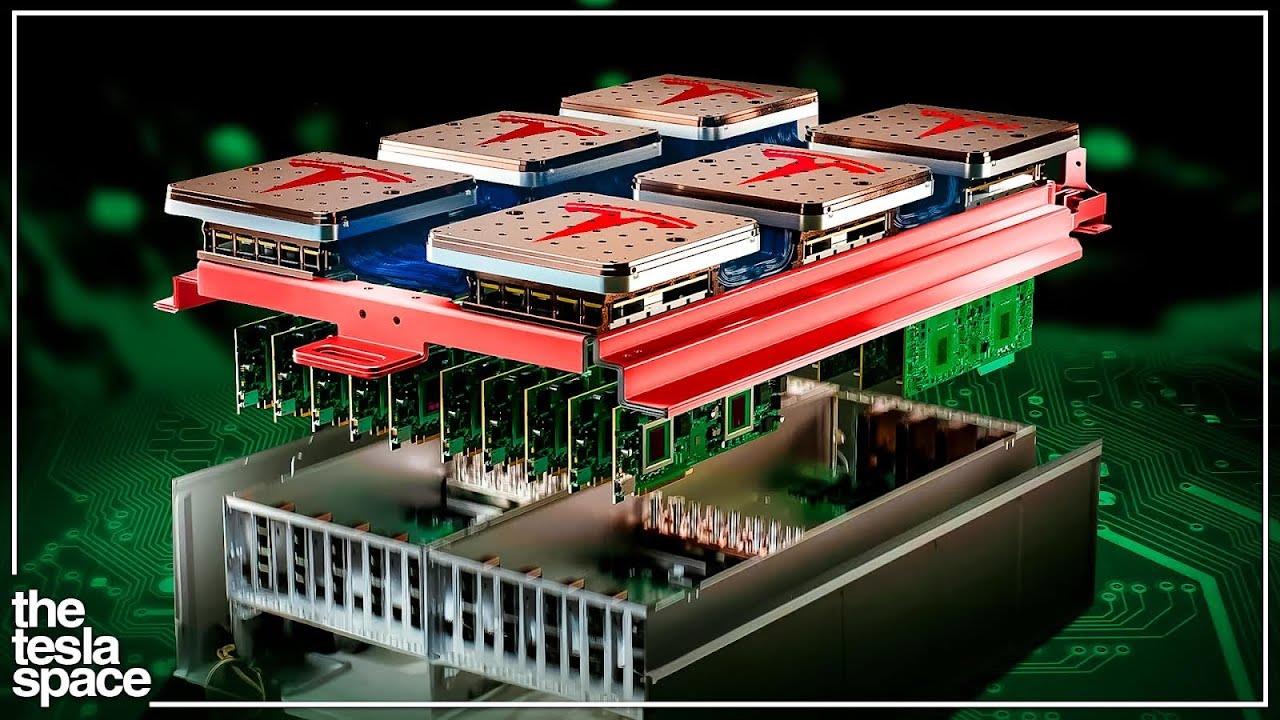
Tesla Discontinues Dojo AI Supercomputer Amid Challenges
Tesla has officially halted operations of its Dojo supercomputer, a key element in CEO Elon Musk's vision for advancing full self-driving technology. Originally introduced as a crucial piece of the puzzle for the automaker's autonomous driving ambitions, Dojo was expected to significantly enhance Tesla's machine-learning capabilities. The decision to shut down the AI training system comes at a time when Tesla is facing increased competition in the rapidly evolving autonomous vehicle sector, with several players refining their own self-driving technologies.
Dojo was conceived as a highly specialised AI processor capable of training Tesla's neural networks with vast amounts of data. The supercomputer aimed to process exabytes of data, training Tesla vehicles to drive without human intervention. This process, known as deep learning, is fundamental for self-driving systems to predict and react to real-world scenarios. Musk had previously emphasised Dojo's importance, indicating that its processing power would be indispensable in enabling full self-driving capabilities.
Tesla's decision to discontinue Dojo has raised eyebrows within the tech and automotive industries, especially as the company continues to ramp up its FSD program. The supercomputer's shutdown signals potential hurdles in the development of Tesla's AI-driven platform, leading some experts to question whether the technology has encountered significant roadblocks. While Tesla remains committed to self-driving technology, the discontinuation of Dojo highlights the complexities involved in achieving true autonomy.
While Tesla's engineers continue to refine their vehicle's driving capabilities, it remains unclear whether the company will pursue alternative solutions to replace the discontinued Dojo. Analysts have speculated that the company might turn to other AI providers or reallocate resources to its existing infrastructure in an attempt to advance its self-driving systems. Industry competitors, including Waymo, Cruise, and other autonomous vehicle developers, are also working on similar AI platforms, further intensifying the race for leadership in self-driving technology.
See also Google's Gemini CLI Widens Access to Cutting‐Edge AIThe cancellation of Dojo comes amid growing scrutiny of Tesla's self-driving program. Critics have long raised concerns about the safety of FSD and its reliance on software updates. Despite ongoing improvements, Tesla has faced legal challenges and regulatory investigations related to its self-driving technology. Some regulators, particularly in the US, have questioned whether Tesla's marketing of FSD creates unrealistic expectations, as the system is still limited in terms of capability and oversight.
The shutdown has sparked debate about the future of Tesla's AI strategy. Dojo had been integral to Tesla's claims of a technological edge over competitors in the race for full autonomy. Musk's previous statements regarding the supercomputer's potential were bold, suggesting that Tesla could offer level-five autonomy-a scenario where human intervention is no longer required-by the end of the decade. However, the dissolution of Dojo now raises doubts about whether Tesla will meet these lofty goals.
As Tesla moves forward, its focus on refining AI-driven solutions will likely continue, albeit with a different approach. The company has poured substantial resources into advancing its neural networks and sensor technologies, including the use of cameras and radar to enable more robust decision-making in real-time driving environments. Tesla's autonomy aspirations have been a cornerstone of its brand identity, and the company's efforts in this domain are unlikely to wane despite setbacks such as the discontinuation of Dojo.
Dojo's exit also raises questions about the long-term strategy behind Tesla's investment in AI hardware. The company's decision to phase out a key AI training system could signal a shift in its approach to machine learning, perhaps moving towards a more decentralised model or opting to collaborate with third-party AI firms. Tesla's autonomous technology ecosystem has always been in flux, with the company constantly reassessing its direction based on new developments, both internal and external.
See also Amazon Q Exposed to Vulnerabilities by Hacker Notice an issue? Arabian Post strives to deliver the most accurate and reliable information to its readers. If you believe you have identified an error or inconsistency in this article, please don't hesitate to contact our editorial team at editor[at]thearabianpost[dot]com . We are committed to promptly addressing any concerns and ensuring the highest level of journalistic integrity. Legal Disclaimer:
MENAFN provides the
information “as is” without warranty of any kind. We do not accept
any responsibility or liability for the accuracy, content, images,
videos, licenses, completeness, legality, or reliability of the information
contained in this article. If you have any complaints or copyright
issues related to this article, kindly contact the provider above.


















Comments
No comment